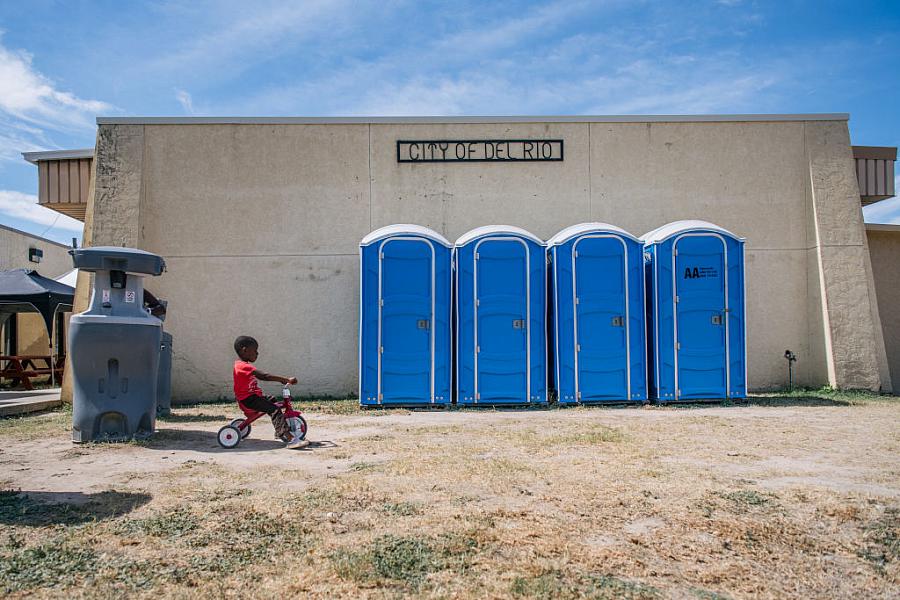Shining a light on the precarious health of migrant children in federal custody

Brandon Bell/Getty Images
For years, the bulk of my work has focused on what happens to young migrants who’ve been detained by the federal government.
I’ve talked to children who’ve been held in freezing cells on the border, shortly after arriving in the United States by themselves. I’ve spent time talking with kids who’ve been forcibly drugged at a residential treatment center in Texas. I’ve detailed the separation of a mother from her child after crossing in Arizona, and the way her 6-year-old was placed in a vacant office building run by a defense contractor in Phoenix. I’ve documented the way a 10-year-old was separated from her family at the border under Obama and shipped around to countless shelters all around the country before asking to be deported back to Honduras — the place she fled as a child after her uncle was assassinated. And I’ve illustrated the way shelters call local police to tackle behavioral issues, sometimes resulting in brutality. In the latter case, a sheriff deputy’s body camera video speaks for itself.
Detention changes people, and it really changes children. Some grow up too fast, bearing the burden of family separation with a mature facade that conceals what’s crumbling inside. Others are understandably angry at the years that were stolen from them — formative childhood years where they didn’t get to develop like free children do. And for some children, the mental harm that comes with confinement feels like it’s too much to bear: they physically hurt themselves.
This detention didn’t start with the Trump administration. In fact, the policy that governs the treatment of migrant children in federal custody stems from a Reagan-era class action suit, filed by four Central American teen girls who were kept away from their families in brutal conditions. Nearly four decades later, the detention of migrant children has changed, but it hasn’t stopped. Close to a year after he was elected, Biden’s administration is confining more than 10,000 migrant children, mostly in a collection of federally funded shelters in multiple states.
Over time, I’ve requested a lot of records concerning the care of migrant children in federal custody, particularly those held in shelters funded by the Office of Refugee Resettlement. Children are only supposed to be held for short periods of time before being reunited with family members. But I kept hearing that this wasn’t happening.
When the government refused to respond to my records requests, I sued. The data I’ve acquired as part of the resulting settlement is illuminating: I finally had close to 300,000 records, one for every child held in custody over a period of six years. The data are children whose time in custody has been rendered into columns about who they are, where they were in the shelter system, and for how long. But, because I’m a novice when it comes to data, I’ve always had to rely on a reporting partner and my organization’s data team to make sense of it.
Now well into the second year of an ongoing settlement, the government has finally started producing records that chronicle the mental health of migrant children confined in shelters under the early part of the Biden administration. The fight for these records has been long, in part because the data includes thousands of detailed personal narratives that describe challenging mental health episodes in custody. Episodes that shelters, sometimes staffed with hourly workers with nominal training, are ill-equipped to handle.
While so much immigration reporting delved into family separation under Trump, I remain committed to documenting migrant child welfare regardless of who’s president. My 2021 Data Fellowship will be a first glimpse into the mental health of migrant children in custody during Biden’s first 100 days. The data I’m obtaining will drive my reporting and provide an opportunity for policymakers to respond about the way children are being treated in what remains a secretive federal system, charged with taking care of some of the most vulnerable kids on Earth.

